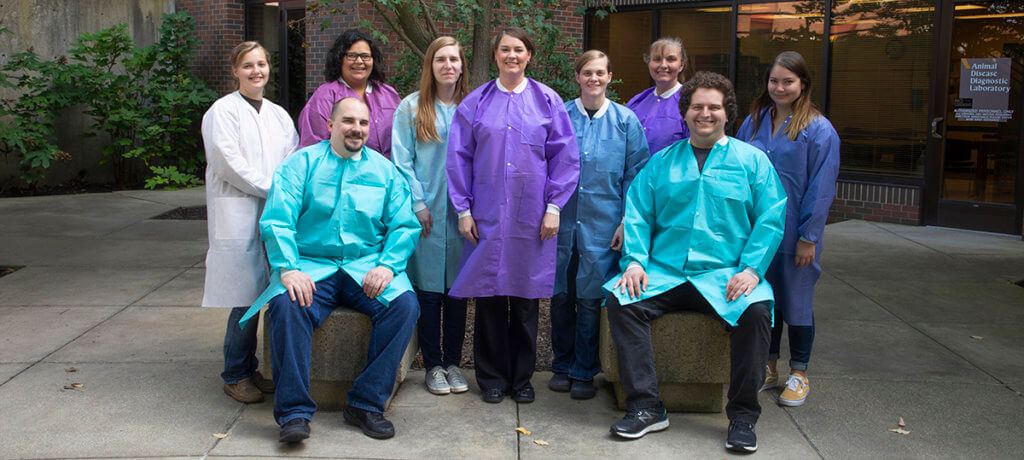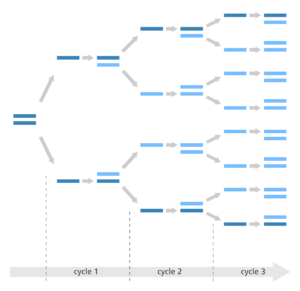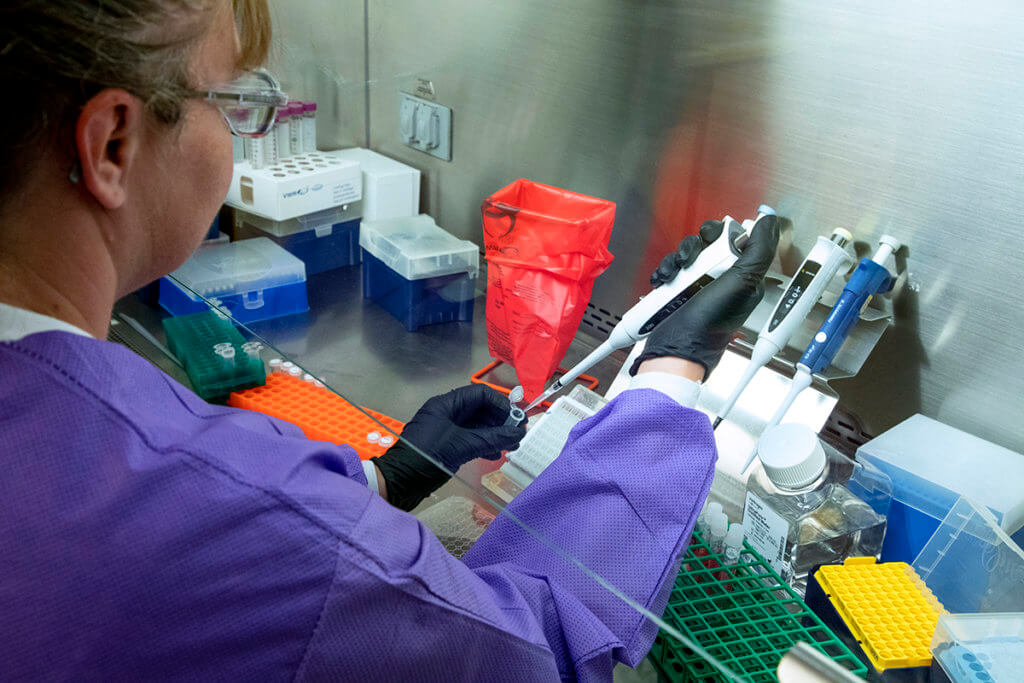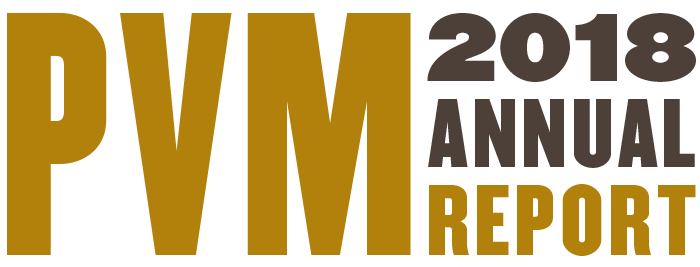
Polymerase chain reaction is a biotechnological technique used in advanced medical diagnostics. The testing method, commonly known as PCR, also represents one of the fastest-growing areas of the modern veterinary diagnostic lab, including the Indiana Animal Disease Diagnostic Laboratory (ADDL) at the Purdue University College of Veterinary Medicine.

Illustration showing how the polymerase chain reaction (PCR) doubles pieces of DNA. Image credit: Genome Research Limited
PCR uses molecular biology to amplify a segment of DNA and generate thousands of copies of these DNA sequences in a bulk mixture. Through a series of mixtures with strategic binders called primers and thermal cycling, PCR reveals the presence of an infectious disease, or lack thereof.
In her new position as head of the ADDL’s molecular diagnostics section, Dr. Rebecca Wilkes, Purdue Veterinary Medicine assistant professor of molecular diagnostics, plans to expand PCR testing by adding new tests and equipment and developing more panel tests that screen for multiple diseases with a single sample. “We see so many benefits to using PCR for diagnostics and would like to see more accessions for equine and small animal testing in the near future,” Dr. Wilkes said.
PCR comes with many benefits in diagnostic testing. It can be used to analyze extremely small amounts of samples, new or old. It also is useful for difficult or slow-growing preparations and when a rapid diagnosis is required.
“PCR is fast. We can give same-day or next-day results. But the biggest benefit of PCR testing for clinicians is earlier diagnosis,” said Dr. Wilkes. “Historically, the animal had to be ‘sick enough’ to detect any disease agents present, but with PCR, the use of amplification makes effective diagnostic testing possible sooner.”

ADDL Molecular Diagnostics Operations Supervisor Velina Lindley prepares samples for DNA extraction.
As PCR grows in popularity, microbiologists are increasingly developing panel tests to address clinical needs. Tests such as the bovine respiratory panel are designed to rule out or confirm five common diseases in bovine patients. “Our clinicians really appreciate this as an option because it’s fast and can be definitive. We are always willing to add new tests,” said Dr. Wilkes.
Originally from Memphis, Tenn., Dr. Wilkes earned her DVM degree at the University of Tennessee, where she also completed her PhD in comparative and experimental medicine. She went on to work several years at the University of Georgia Veterinary Diagnostic Laboratory before coming to Indiana in August of this year to lead the ADDL’s molecular diagnostics section, which includes six full-time employees and three students. Throughout her career, Dr. Wilkes toyed with the idea of being a clinician, but found that she had talent and skill for problem solving in diagnostics. “I love the chemistry and biology of this process, and in diagnostics it’s immediately gratifying to get answers to your questions,” Dr. Wilkes explained. “When it comes down to it, the lab feels like home.”
For a full list of PCR tests, including clinical cost, collection, and shipping information, please refer to the ADDL website: addl.purdue.edu.

